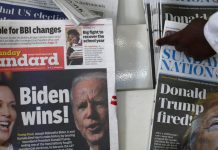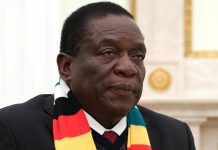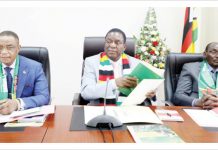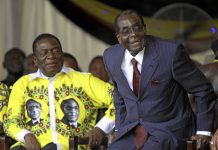Realise Mwase (24), also known as Ree Mwase, has built new bridges for African literature in the internet-age. The author is proving that “poetry is not dead” with his new release, African Pride which landed him on the stage of TedTalk.
TedTalk is an international media organisation that posts talks online for the spread of ideas and education. The publication is inspired by a modern African society which is riddled by the effects of colonialism, poverty, tragedy and drug abuse. African Pride paints a haunting picture of Africa as a doomed continent, with all its abandoned infrastructure, ready for a rebirth.
Ree Mwase is a visionary for a ‘new Africa’ that is “seldom on the lips of outsiders”. The Africa that was liberated by national heroes such as Patrice Lumumba and Kwame Nkrumah is still a work in progress.
The poet who describes himself as a wordsmith and storyteller discusses his struggles as an African and Zimbabwean living in the diaspora. “I’ve been living in Cyprus for over 5 years,” he says. The author admits to African Pride being inspired by the negative press of Zimbabwe in the international community. “I was in the midst of defending Zimbabweans,” he adds. It is the African identity that Ree Mwase wanted to bring out through poetry.
Although Ree Mwase is proud to be Zimbabwean, he considers himself African first. “I’m of the Tonga ethnicity but was born and raised in Zimbabwe. I wouldn’t go as far as calling myself Pan-African but I’d like to believe I represent the motherland in my own way,” he explains. While owning up to his African identity, Ree Mwase expresses the confidence of someone who has always been enlightened. However, the author has not always found it easy to be proudly African, especially when he moved overseas. “The difficult part is accepting the not-so flattering aspects of your identity. Being African transcends aesthetic and preferences,” he says.
Self loathing has been an issue amongst Africans who feel pressured to abide by the international standards of beauty. Ree Mwase is not a fan of proving to be African but letting his identity speak for itself. “I do not approve wearing traditional attire at international festivals to prove that I am African. We end up looking like caricatures of ourselves,” he says.
According to the author, the narrative remains that the African identity is within such as being able to speak the mother-tongue. Ree Mwase advocates for the use of African languages in literature as a preservation of culture.
He is also no stranger to mixing Shona and English literature, deriving influence from Afrocentric music. African Pride incorporates poems inspired by Shona folklore such as “Tsuro NaGudo” (The hare and the baboon). The style gives the reader a sense of home, growing up in Zimbabwe.
Education is one of the most praised sectors in Africa, imposing competition for stable employment among Africans for an escape from poverty. African Pride highlights wisdom as gold for the African child.
One of the outstanding phrases in the novel states: “He arose to pursue his calling. To bring light to young faces. Education is the key.” The line succeeds to warn that the African child has to work twice as hard to find stability, in all the turmoil of hardship. Ree Mwase recalls hitting rock-bottom when faced with a financial situation that delayed his graduation from University in Cyprus. The incident fuelled his need to put pen on paper.
He found his calling in a talent that is no longer sought after due to a dwindling in sales of traditional media. Publishing houses have suffered the consequences of digitalisation, with people preferring to read e-books and blogs rather than hard-copy literature.
Ree Mwase has not let that get in the way of pursuing his dream by embarking on social media marketing of African Pride. It is quite obvious that, in this day and age, an artist can grow a brand through the internet. Ree Mwase owes it to social media for levelling up his career as an author. “Once you have a social media following, the world is yours,” he affirms.






